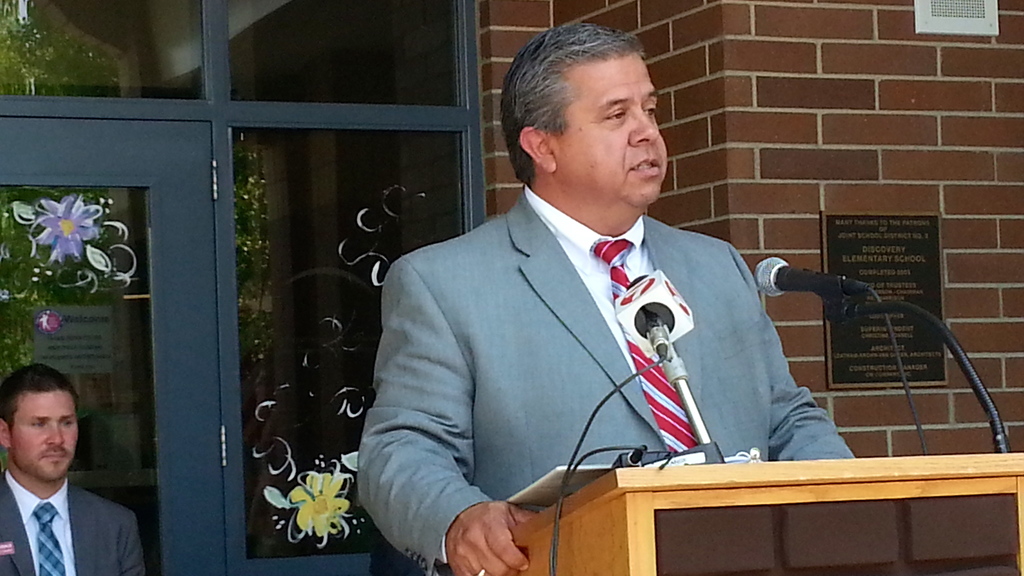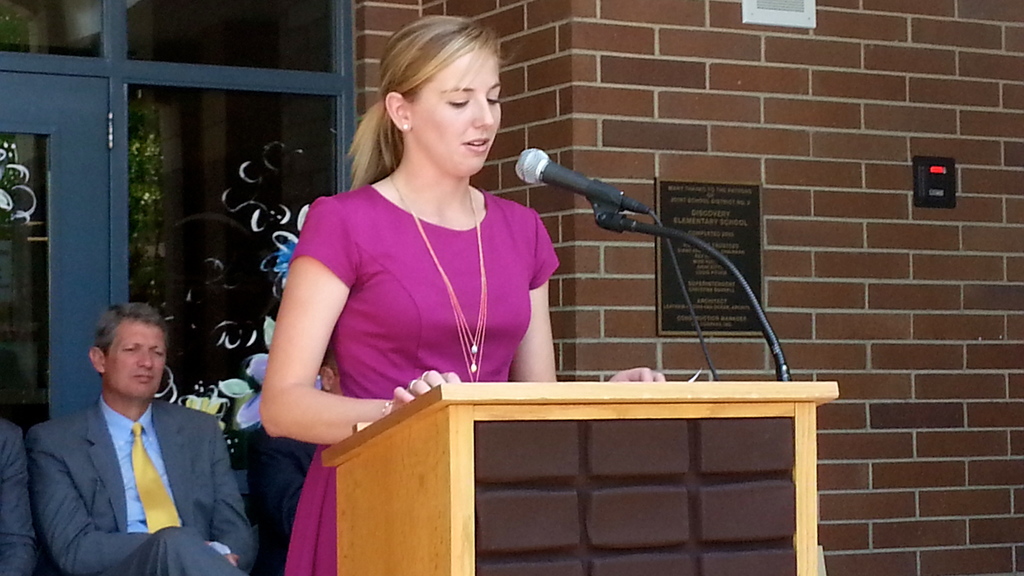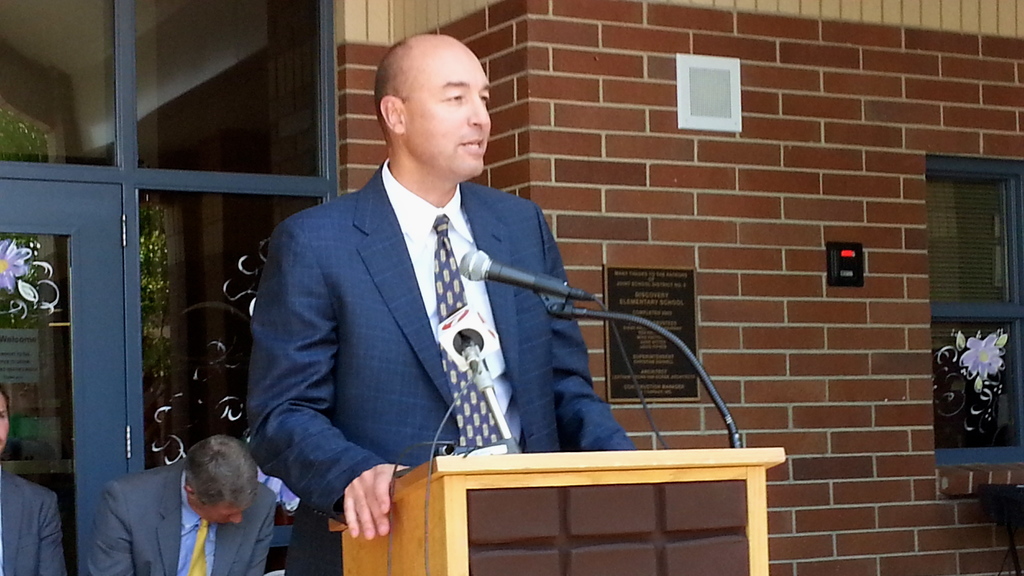Fifteen education stakeholders worked together to award $3 million in Idaho Technology Pilot Grant funds to 11 different schools.

Officials and educators from the State Board of Education, two universities, the Idaho School Boards Association, the Idaho Education Association, the Idaho Association of School Administrators and Northwest Professional Educators were represented on the review panel.
State Department of Education officials declined to reveal panel members prior to Monday’s announcement, saying concealing their identities would protect the integrity of the process.
Superintendent of Public Instruction Tom Luna was not a member of the review panel.
How the process worked
- The identities of the 81 schools that applied were concealed from the panel to avoid any potential bias. Reviewers were instead given a number identifying each application.
- Between June 14 and June 28, panel members reviewed between 15 and 20 applications, scoring them based on guidelines the state sent out with the application notice.
- Reviewers then compiled a short list and finished scoring pilot applications by June 27.
- On Friday, June 28, the panel met through an online conference to go over the applications’ scores and make sure there were no mistakes in scoring or disagreements among the panel.
- Panelists made the final list, and winning schools were notified Friday.
- On Monday, Luna announced the 11 pilot schools and presented officials with checks.
What the panel looked for
Review panel member Cindy Orr, an associate professor at Northwest Nazarene University and a former superintendent and building principal, was looking to reward schools that obviously had a sound plan with large degrees of buy-in.
“I wanted to see that it was a schoolwide effort,” Orr said. “I wanted to see how teachers, students and community members were involved in the writing of the grant and coming up with the concept of what they hoped to achieve in their school.”

Because the review process was blind, Orr didn’t learn which schools had won until Monday. Afterwards, Orr said McCall-Donnelly High School’s student-led application was one of the strongest.
McCall-Donnelly earned $150,000 based on senior Brooke Thomas’ idea to start an iClub. All students in the club have access to an iPad and are responsible for leading teachers and administrators in a schoolwide transformation based on 21st century innovations.
“I agree with McCall-Donnelly: If we are going to make changes in education, students have to be invested in it as well,” Orr said.
Tracie Bent, chief planning and policy officer for the State Board of Education, said it wasn’t enough for school leaders to simply ask nicely for devices. Bent wanted to reward schools that had a plan for using technology to improve education.
“For me it wasn’t good enough to say ‘we’re giving everybody a device, whether it’s an iPad or laptop, and then miraculously students will learn better,’” Bent said.
What’s next?

House Education Committee Chairman Reed DeMordaunt, R-Eagle, said he was extremely happy with the process and the pilot program, which the Legislature authorized.
“It’s exciting to see people catch the vision thinking about how they can transform education,” DeMordaunt said. “Every one of the award recipients caught the vision.”
But Monday’s announcement was only the first step. DeMordaunt expects leaders of all 11 schools to report back to the state and Legislature with recommendations based on their experiences.
Then, DeMordaunt said, successful pilot programs should be investigated, scaled and replicated.
The 11 schools face two key checkpoints where DeMordaunt expects detailed followup reports.
By late fall or December, DeMordaunt wants to study the implementation phase and know if schools have been able to roll out the technology and start doing what officials said they wanted to do.
At the end of the 2013-14 school year, DeMordaunt plans to check back in. At that time, he’ll want a more detailed report including student feedback, teacher feedback and an analysis of changes in test scores.
Based on that feedback, DeMordaunt said lawmakers and state officials will be in a better position to know which programs succeeded, and which implementation plans can be expanded.
“We want to be able to say what works because, at the end of the day, we need to do this across the state,” DeMordaunt said.
The complete review panel
- Allison McClintick, Idaho State Board of Education.
- Tracie Bent, Idaho State Board of Education.
- Andy Mehl, Idaho State Board of Education.
- Royce Kimmons, University of Idaho.
- Cindy Orr, Northwest Nazarene University.
- Dan Massimino, Idaho Leads Project.
- Jessica Harrison, Idaho School Boards Association.
- Penni Cyr, Idaho Education Association.
- Robin Nettinga, Idaho Education Association.
- David Roberts, Idaho Association of School Administrators/ Boise School District.
- Jeff Dillon, Idaho Association of School Administrators/ Wilder School District.
- Trina Snyder, Idaho Association of School Business Officials / Orofino School District.
- Jennifer Johnson, Idaho Association of School Business Officials/ Moscow School District.
- Julie Williams, Northwest Professional Educators / Forrest Bird Charter School.
- Lucy Wafwa, Northwest Professional Educators / Vision Charter School.
